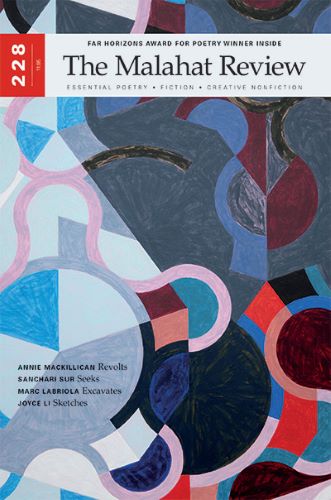World Literature Today – September-October 2007
Volume 81 Number 5
September-October 2007
Bimonthly
Deborah Diemont
World Literature Today, published by the University of Oklahoma-Norman, is international in scope, focusing on languages and cultures worldwide. It ambitiously considers the ways in which language and art are defined by culture, emphasizing that our own culture can only be enriched by exposure to others. In this way, it speaks against xenophobia, not through polemics but by its mere presence.
World Literature Today, published by the University of Oklahoma-Norman, is international in scope, focusing on languages and cultures worldwide. It ambitiously considers the ways in which language and art are defined by culture, emphasizing that our own culture can only be enriched by exposure to others. In this way, it speaks against xenophobia, not through polemics but by its mere presence.
The magazine is broad in its consideration of language: this issue features a language spoken by only 300 people on the planet (Cornish); an island language that had only an oral tradition until its folktales were translated a by gifted Japanese girl (the Ainu language); it treats html like any other language in a piece about dance troupes that perform simultaneously in New York and California, responding to each other’s movements on a computer screen. And that’s not all. The “Outposts” department feature about a Nahuatl community festival in Guererro, Mexico would fit well in a travel magazine. A novella excerpt translated from Russian (The Pit: a Novella of Camp Life by V. Dolinin) is reminiscent of Solzhenitsyn’s The Gulag Archipelago.
I could complain that WLT lacks unity: so many languages, genres, directions. But that would be like complaining there are too many dishes at the banquet. This issue’s theme is: “Endangered Languages: Voices on the Brink of Extinction,” featuring poems and stories in obscure languages along with English translations. The reader is exposed to Khomani (South Africa), Maori (New Zealand) Basque (Spain) and Cornish (England) among others. It is a reminder of how complex and nuanced the world really is, with precursors and co-existers to what we think of as dominant languages.
There’s an interview with Alum Tan Lan, a young musician who only records in Welsh. What does Welsh music sound like? It makes me want to hear it. There are poems by the Arabic poet Sinan Antoon, unabashedly political and carried on a subtle wave of rhyme, as in “A Letter” addressed to “the dead Iraqis”: “Had you been trees / you would have made a beautiful forest / whose destruction would have been deemed a crime / against the planet. / Had you been words, you would have formed a precious book / or manuscript whose loss / would be mourned across the world / But you are none of these.”
As a publication, WLT is “none of these.” It seeks to bring us words, rhythms, stories, and lives that need to be salvaged. And we didn’t even know that they do.
[www.worldliteraturetoday.com]




